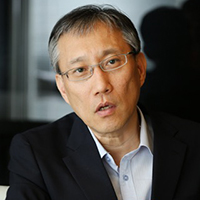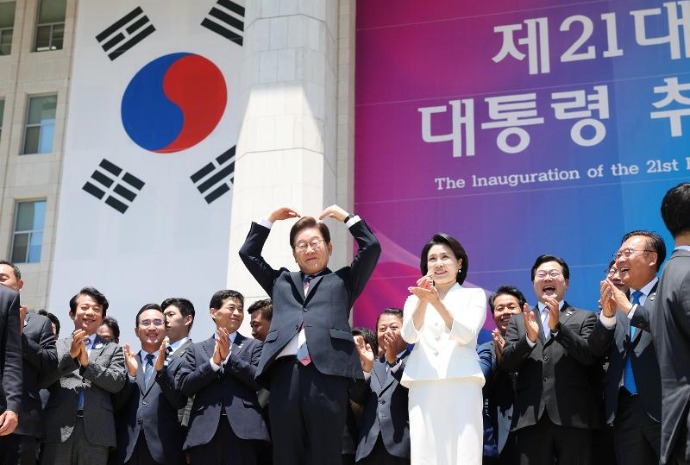
Professor at Seoul National University
At midnight on Aug. 28, Japan implemented its decision to remove Korea from a whitelist of preferential trading partners despite a lot of controversy. Tokyo gave as its official reason its need to reconsider its trade control system due to security fears. The most direct reason for this action, however, is the ruling by the Korean Supreme Court on Oct. 30, 2018, on a lawsuit filed by forced labor victims. The Japanese government insisted that this verdict violated Article II of the 1965 Korea-Japan Claims Settlement Agreement, demanding a response from the Korean government on the verdict through many channels. Tokyo also requested bilateral negotiations and mediation under Article III of the 1965 bilateral treaty. The Korean government, however, rejected Japan's demands while the victims continued the process of seizure and liquidation of the accused Japanese companies' assets based in Korea.
Japan needs approximately 90 days to exclude Korea from its whitelist of countries qualifying for inclusive export approval and change to a case-by-case approval system for exports to Korea. About the same length of time is required for the liquidation of the Korea-based assets seized from the Japanese companies. Considering these circumstances, Japan's measures obviously targeted this exact timing. Japan's export restrictions are already in-between the boundaries of violations of World Trade Organization (WTO) rules. Because of this, Tokyo has strongly denied any connection between this issue and politics yet its ultimate intent lies in nullifying the Korean Supreme Court verdict.
Japan's main gripe is that the ruling violated international law. Right after the decision was rendered last year, Japan's foreign minister said in a statement, "Korea violated international law through the ruling from its top court." Citing the 1965 treaty, Japan said it pledged financial support of USD 300 million in grants and USD 200 million in credit assistance to Korea (Article 1). Tokyo also said wartime property and claims right issues were completely and definitively settled by this agreement (Article II). Thus Japan insisted that the Supreme Court ruling ordering Japanese corporations to pay damages and compensation to forced labor victims violated Article II. Tokyo also urged Seoul to respond to this violation of international law and take appropriate measures.
Yet such logic by Japan makes no sense in several ways. First, the Supreme Court ruling ordered the accused companies to pay each victim damages and compensation caused by their mobilization for forced labor. The victims' right to claim reparations is not governed by the 1965 settlement agreement, which merely resolved in a political manner the property claims rights from the perspective of civil law. The agreement is not related to the payment of damages caused by the violation of basic human rights under Japan's unlawful colonial rule. As Japan itself said in the announcement, it pledged to provide financial cooperation to Korea, and the treaty never mentioned the legal nature of such cooperation. Moreover, the relationship between Tokyo's pledge to provide financial cooperation and the resolution of an individual victim's right to file a claim remains ambiguous, something already pointed out by the Korean Supreme Court.
Second, if Japan insists that the Korean Supreme Court ruling ordering Japanese companies to pay reparations violated Article II of the treaty, it must prove whether payment of damages is included in matters recorded as resolved by Article II. If the right to file a claim was resolved through the treaty, Tokyo must confirm if the treaty acknowledged the unlawfulness of Japanese colonial rule of the Korean Peninsula, which is a precondition for reparations. Furthermore, if Japan argues that the right to file a claim was resolved through its compensation payment, I wonder if this constitutes a change in Japan's prior interpretation of the treaty that said Article I has no legal connection to Article II.
Third, another issue is interpretation of a clause of the treaty under statutory or common law. This is because both nations have different interpretations of the bilateral treaty and the claims settlement agreement. The understanding is that the two accords are based on the differing interpretations of the two countries. In other words, Korea considers Japanese colonial rule an unlawful act in accordance with the treaty, something Japan denies. Seoul also insists that Article I has an inseparable connection to Article II of the agreement, while Tokyo rejects the notion that the two articles are connected.
So even if Korea makes a major concession by accepting Japan's argument that the Korean Supreme Court is against Tokyo's interpretations of the treaty and the agreement and has unilaterally followed Korea's interpretations, the Korean court ruling must be allowed in line with the existing practice of "agreeing to disagree." If Tokyo considers this a violation of international law, this means Japan is breaching international law as common law.
This legal quarrel is extremely complicated and hard to understand for ordinary people. What can be confirmed here, however, is that the discord in the interpretation of the two agreements by both nations has caused this situation.
Thus one way to resolve the bilateral row is to get both nations to agree on interpretations of both the bilateral treaty and the claims agreement and remove the incompleteness of the Korea-Japan 1965 system. In 1965, Japan stubbornly rejected Korea's demand to acknowledge the unlawfulness of its colonial rule. Entering the 1990s, however, Tokyo's awareness grew closer to Seoul's through the 1993 Kono Statement, the 1995 Murayama Statement and the joint declaration between Korean President Kim Dae-jung and Japanese Prime Minister Keizo Obuchi in 1998. In 2010, Japan, through a statement by Prime Minister Naoto Kan, admitted that its colonial rule of Korea was done against the will of the Korean people. Thus the remaining task is to document such agreements and share them with Seoul and Tokyo.
In the end, the more fundamental issues between Korea and Japan sealed by the 1965 framework have been exposed by the Korean Supreme Court ruling. The future of bilateral relations lies in how both countries can overcome the post-1965 framework. Thus Korea and Japan need to respond wisely based on history and legal principles.
Nam is an associate professor at the Institute for Japanese Studies of Seoul National University.
Translated by Korea.net staff writer Yoon Sojung
